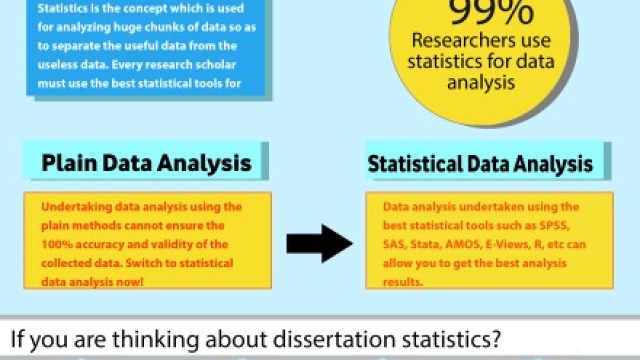Starting and completing a dissertation or capstone project can be a daunting task for many students. The journey towards earning a master’s or doctoral degree often culminates with this final scholarly endeavor. From choosing a topic to conducting research, analyzing data, and presenting findings, the thesis process involves a series of systematic steps that require organization, critical thinking, and perseverance.
One crucial aspect of the thesis journey is understanding the intricacies of dissertation data analysis. Data analysis is the process of interpreting and making sense of the information collected during research. It involves applying statistical methods and various analytical tools to identify patterns, draw meaningful conclusions, and support or refute research hypotheses.
Effective data analysis is essential for a robust dissertation or capstone project. It not only helps to validate the research and answer the research questions but also contributes to the overall quality of the study. Properly conducted data analysis enhances the credibility of the findings and adds depth to the discussion and conclusions drawn from the research.
In the following sections, we will explore key strategies and practices that will assist you in mastering the process of dissertation data analysis. Whether you are working with quantitative or qualitative data, these guidelines will equip you with the necessary skills to navigate through the complexities of analyzing and interpreting your research findings. So let us embark on this journey together, and unlock the secrets to conquering dissertation data analysis!
Understanding Dissertations and Capstones
Dissertations and capstones play a vital role in academic research. These projects serve as culminating experiences for students pursuing advanced degrees. They require a deep understanding of the subject matter and a rigorous approach to data analysis, contributing to the body of knowledge within their respective fields.
A dissertation is a comprehensive research project completed by doctoral students. It is a lengthy and rigorous endeavor that requires originality, critical analysis, and the ability to synthesize existing research. Dissertations are often conducted over several years and involve extensive data collection, analysis, and interpretation. This process allows students to demonstrate their mastery of the subject, contribute to existing knowledge, and make a unique contribution to their field of study.
Similarly, capstones are projects completed by students at the end of their undergraduate or graduate programs. While less extensive than dissertations, capstones still require students to apply their knowledge and skills gained throughout their academic journey. Like dissertations, capstones often involve collecting and analyzing data to address a specific research question or problem. These projects allow students to showcase their ability to integrate theory and practice while making meaningful contributions to their chosen field.
Both dissertations and capstones require rigorous data analysis, an integral component of any research project. Data analysis involves organizing and interpreting collected data to draw meaningful conclusions. This may require the use of statistical methods, data visualization techniques, or other analytical tools. Through data analysis, researchers can identify patterns, relationships, and trends within their data, supporting their research objectives and answering their research questions.
In conclusion, dissertations and capstones are significant milestones in the academic journey of students. They offer opportunities for students to showcase their expertise, contribute to knowledge, and demonstrate their ability to conduct comprehensive data analysis. These projects are essential for advancing research, fostering innovation, and preparing students for careers in academia and beyond.
The Importance of Dissertation Data Analysis

Data analysis plays a pivotal role in the successful completion of dissertations and capstones. It is through meticulous examination and interpretation of data that meaningful insights can be extracted, contributing to the overall value and significance of the research. By uncovering patterns, trends, and relationships within the data, researchers can establish the credibility of their findings and draw reliable conclusions.
Notably, dissertation data analysis serves as the backbone of evidence-based research. As researchers collect data from various sources and methods, it is essential to analyze the information systematically. This process enables them to identify any gaps or inconsistencies in the data, ensuring that the final results are valid and reliable. Moreover, through rigorous analysis, researchers can validate or challenge existing theories, ultimately making substantial contributions to their field of study.
In addition to validating research, data analysis also aids in making informed decisions and generating actionable recommendations. By carefully examining the data, researchers can identify key insights and trends that may have otherwise gone unnoticed. This information can then be used to inform policy changes, improve practices, or guide decision-making processes in various industries and domains.
In conclusion, dissertation data analysis is integral to the research process, as it not only validates findings but also generates meaningful insights and recommendations. By carefully examining and interpreting data, researchers can draw reliable conclusions, validate existing theories, and make valuable contributions to their academic discipline or professional field.
Tips for Successfully Completing Your Dissertation or Capstone Project
Stay organized: One of the key factors in successfully completing your dissertation or capstone project is maintaining a high level of organization. This involves creating a detailed plan or timeline that outlines all the tasks you need to accomplish and setting deadlines for each. Additionally, keep all your research materials, data, and notes organized in a logical manner to easily access them when needed. By staying organized, you can efficiently manage your time and ensure that you are making progress towards completing your project.
Seek guidance and support: Don’t hesitate to reach out for guidance and support throughout your dissertation or capstone project. Consult with your advisor or supervisor regularly to discuss your progress, seek feedback, and clarify any doubts or uncertainties. They can provide valuable insights and suggestions to help you stay on track. Additionally, consider forming a study group or joining a support network with fellow students who are also working on their own projects. Sharing experiences, offering support, and bouncing ideas off each other can be immensely beneficial.
Take care of yourself: While it’s important to dedicatedly work on your dissertation or capstone project, don’t neglect your own well-being. Taking care of yourself physically and mentally is crucial for maintaining focus and productivity. Make sure to get enough sleep, eat well-balanced meals, and engage in regular exercise or relaxation activities to recharge your mind. Find time to pursue hobbies or interests that you enjoy, as they can provide a much-needed break and prevent burnout. Remember, a healthy and balanced approach to your project will contribute to your overall success.
Capstone Writing Services
As you embark on your dissertation or capstone project, keep these tips in mind. By staying organized, seeking guidance and support, and taking care of yourself, you will increase your chances of successfully completing your project and making a meaningful contribution to your field of study. Good luck!






Recent Comments